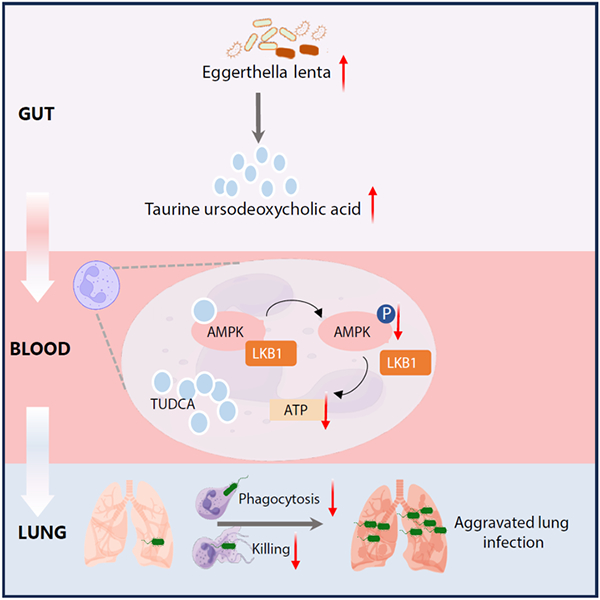

Intestinal bacteria exacerbate lung bacterial infections through metabolites
With the support of National Natural Science Foundation projects (approval numbers: 81925001, 82330070, 82100004, 82300063), Professor Xu Jinfu's team from Tongji University has made progress in the study of the "gut lung axis" in patients with bronchiectasis (abbreviated as bronchiectasis). The research results were published online on February 26, 2025 in the journal Science Translational Medicine under the title "A Gut Eggerthella lenta derived metabolite infections exacerbate bacterial lung infection by impairing neutrophil function". Paper link: https://www.science.org/doi/10.1126/scitranslmed.adq4409 .
Branch expansion is a chronic respiratory disease characterized by the destruction of airway structure and repeated infections. In recent years, the incidence rate of bronchiectasis is increasing year by year, which not only significantly affects the quality of life of patients, but also brings socio-economic burden. Research has shown that there are significant differences in the composition of gut microbiota between patients with bronchiectasis and healthy individuals. However, the specific pathogenic microorganisms and their mechanisms in the "gut lung axis" of bronchiectasis are still unclear.
The research team analyzed fecal samples from 41 patients with bronchiectasis and 29 healthy controls and found that Eggerthella lenta (E. lenta) was significantly enriched in the gut microbiota of bronchiectasis patients. Its metabolite Tauroursodeoxycholic acid (TUDCA) was significantly enriched in both the gut and serum of bronchiectasis patients, and E Both lenta and TUDCA are significantly positively correlated with the severity of the disease. Transplantation of feces or implantation of E. in patients with bronchiectasis Lenta can exacerbate pulmonary Pseudomonas aeruginosa infection in mice. Further research has shown that TUDCA interferes with the LKB1-AMPK interaction by binding to the AMP dependent protein kinase (AMP) - activated protein kinase (AMPK) in neutrophils, reducing AMPK phosphorylation levels and inhibiting neutrophil function, leading to impaired clearance of Pseudomonas aeruginosa and aggravated tissue damage in the lungs. Metformin (an AMPK activator) can alleviate E The obstruction of lung bacterial clearance caused by lenta or TUDCA, and the improvement of neutrophil dysfunction in patients with bronchiectasis (Figure).
This study analyzes the possible mechanism of Pseudomonas aeruginosa colonization in patients with bronchiectasis from the perspective of gut microbiota, revealing the molecular mechanism by which gut bacteria affect lung bacterial infection immunity through their metabolites, and proposing potential intervention strategies. The research results provide new ideas for the prevention and treatment of bronchiectasis patients.